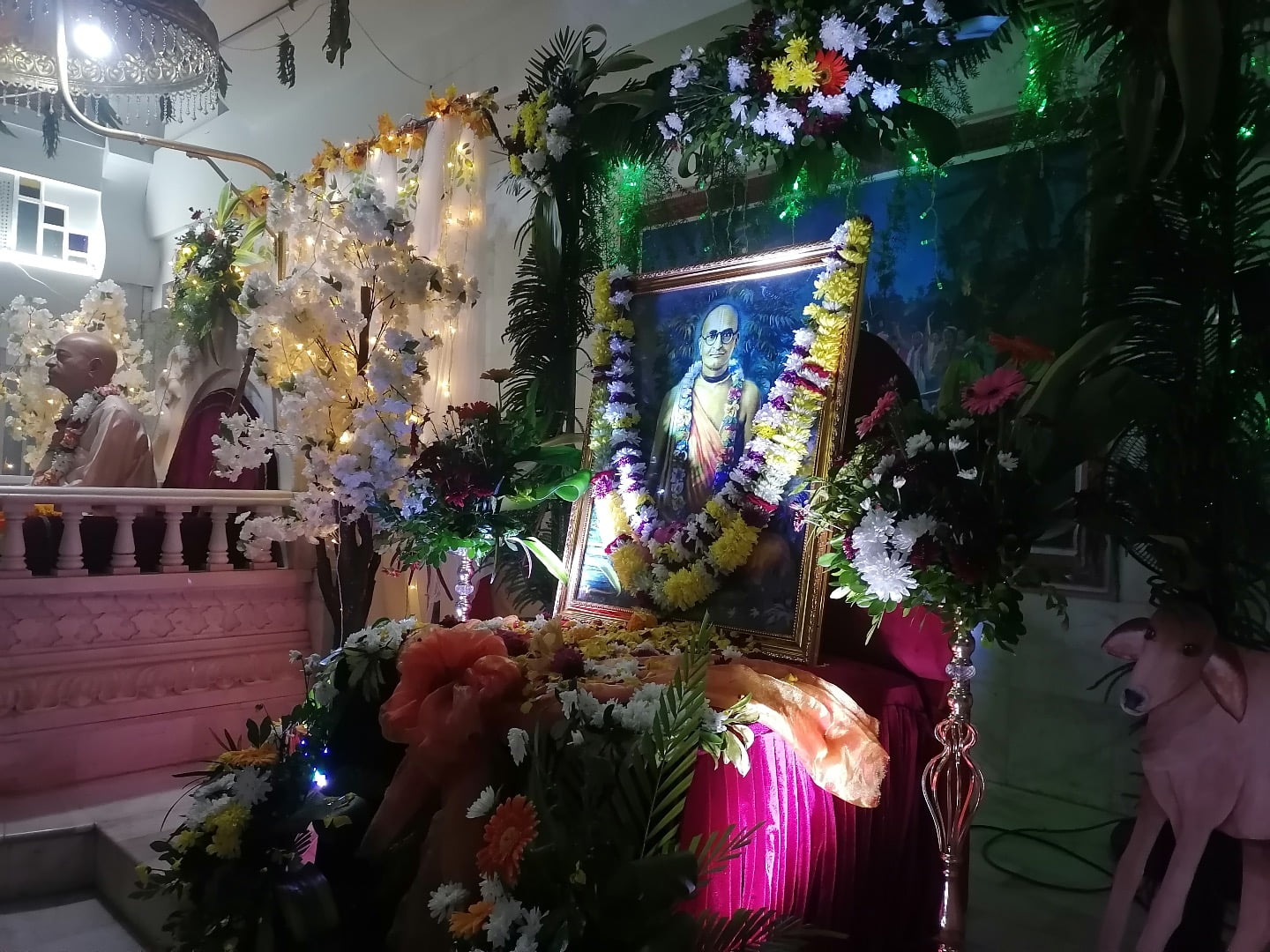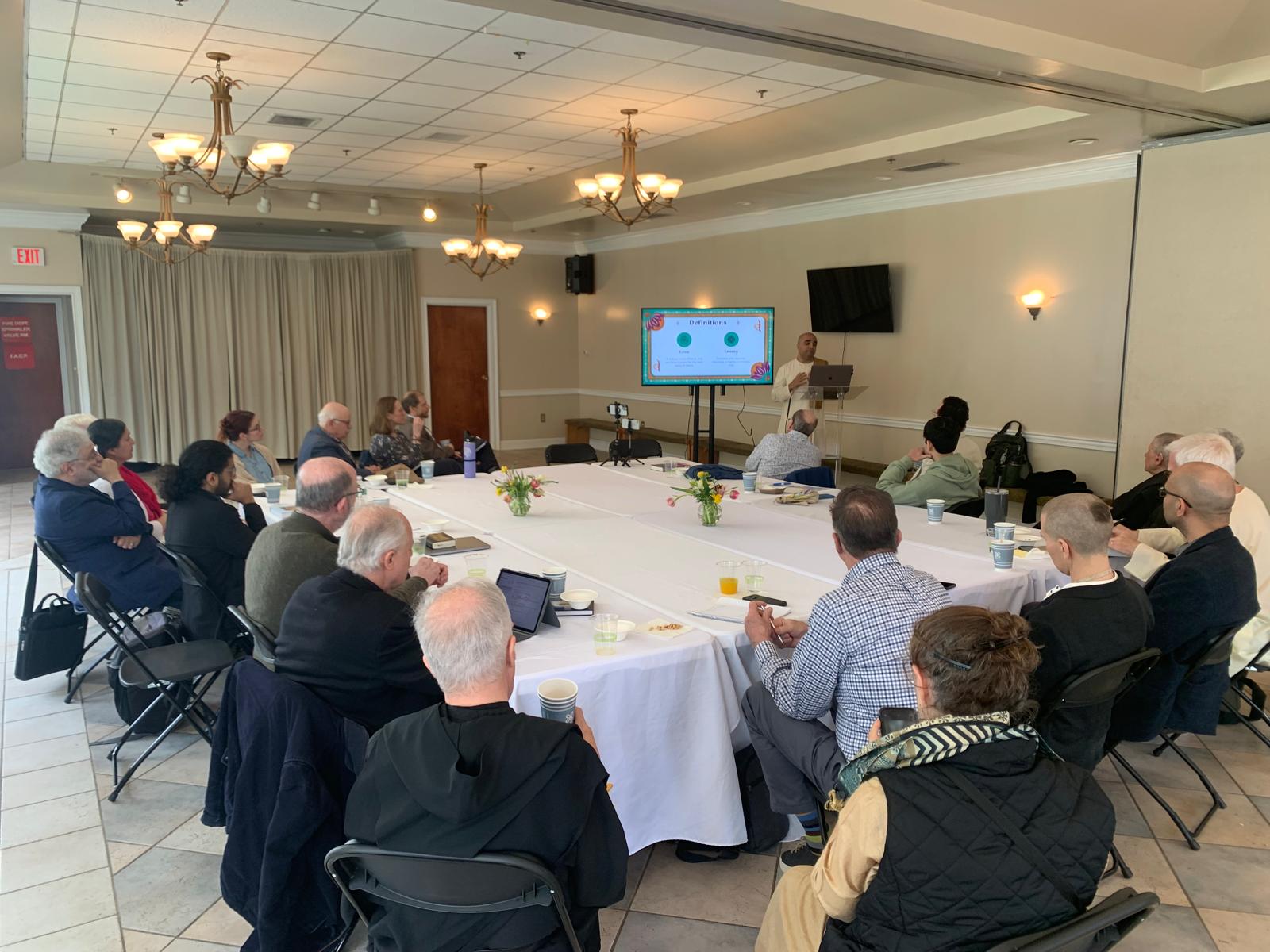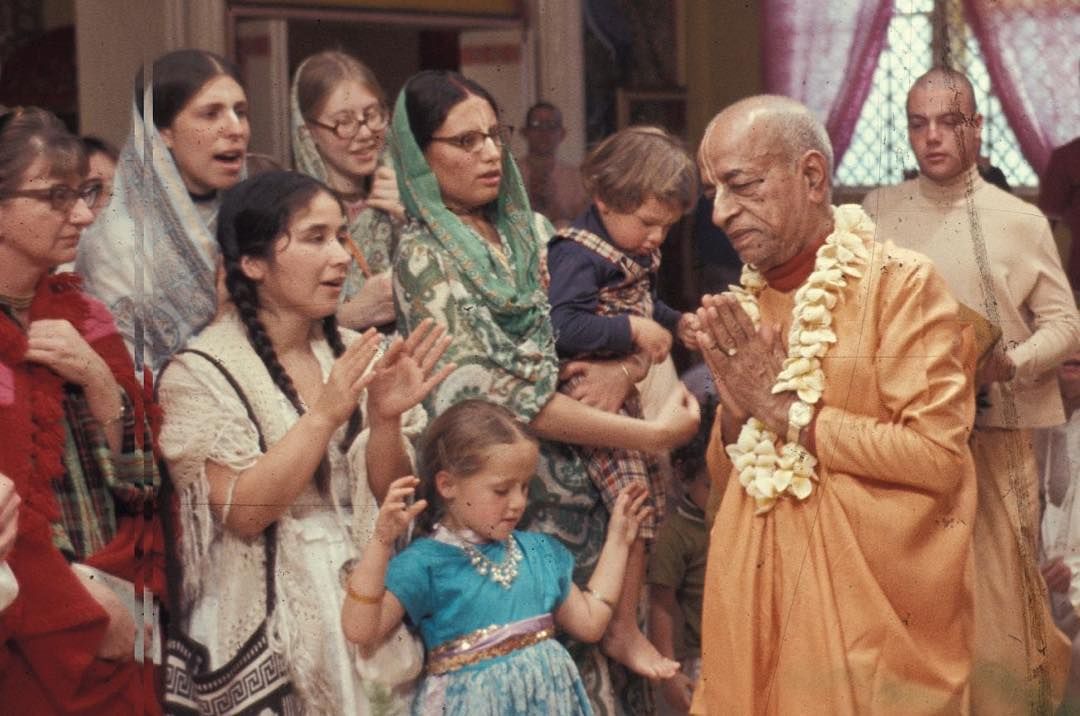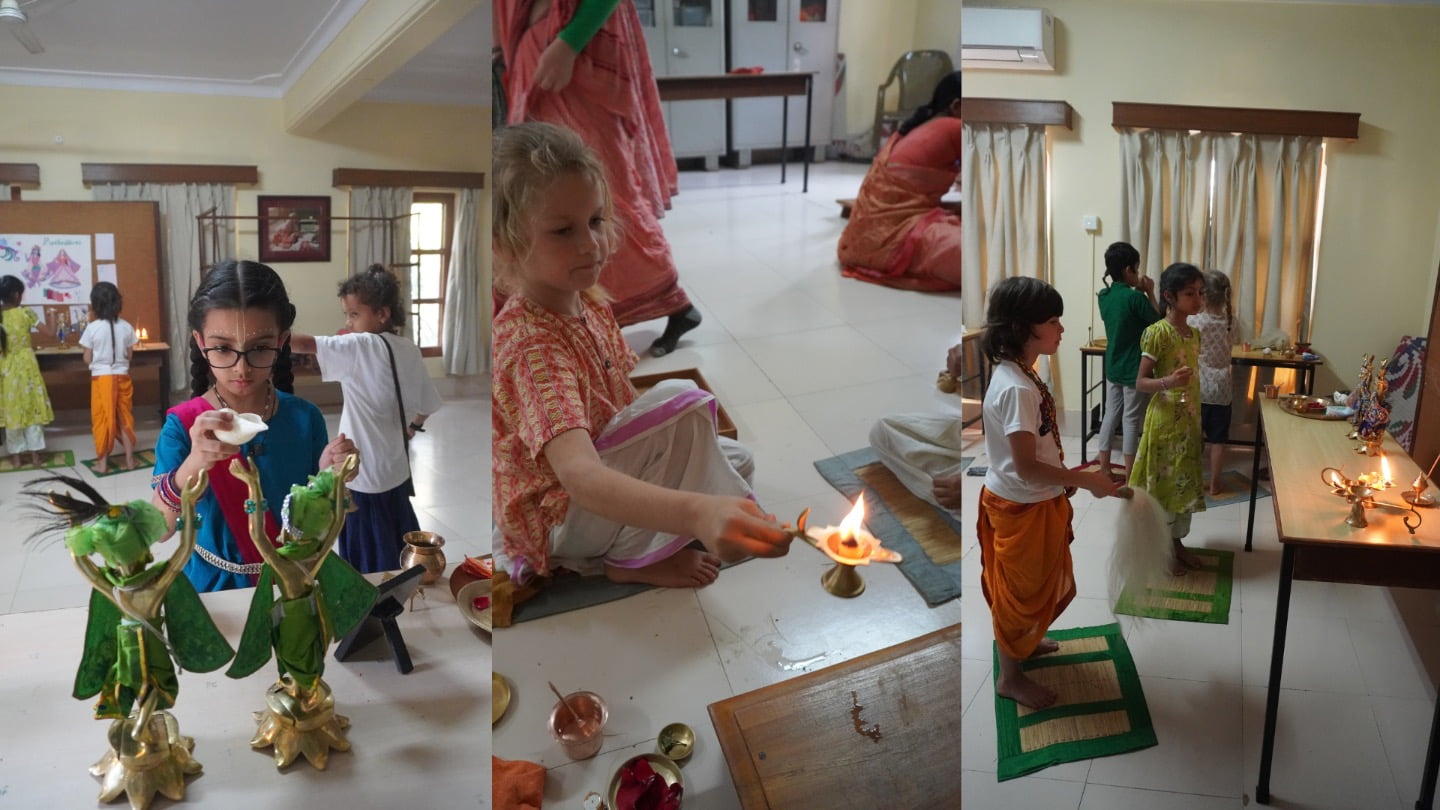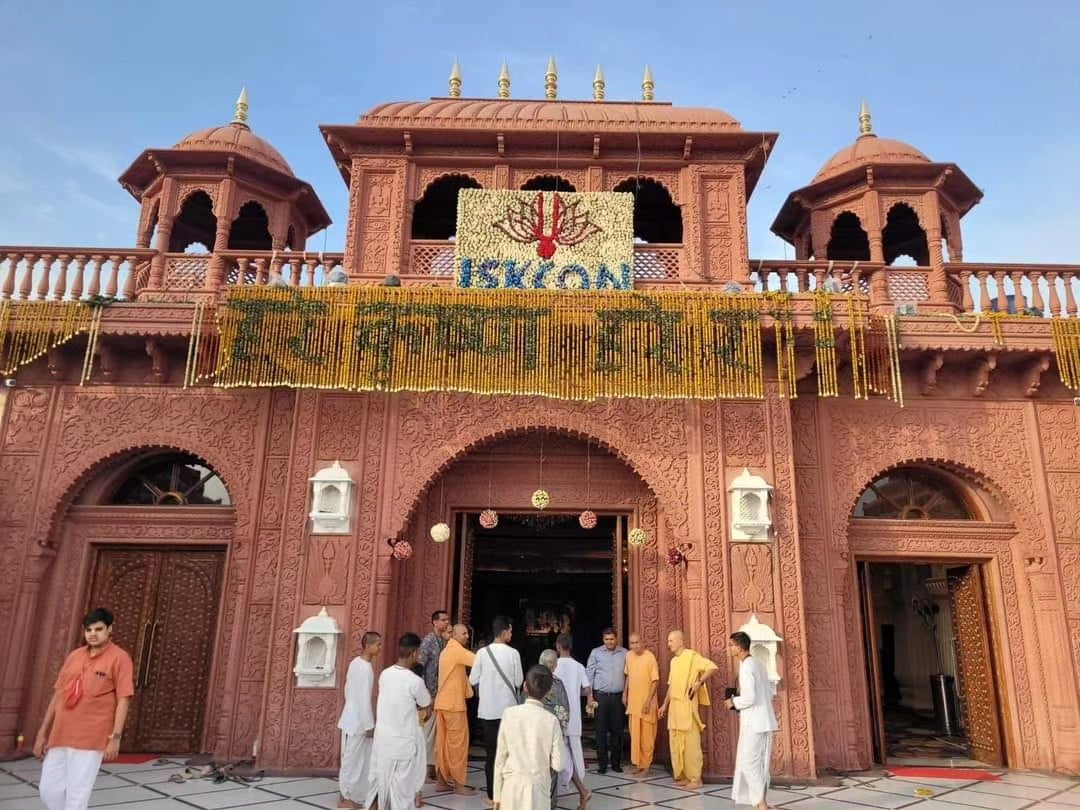“Exploring the Bhagavad-gita” Wins Indic Studies Award
By Madhava Smullen | Dec 27, 2013
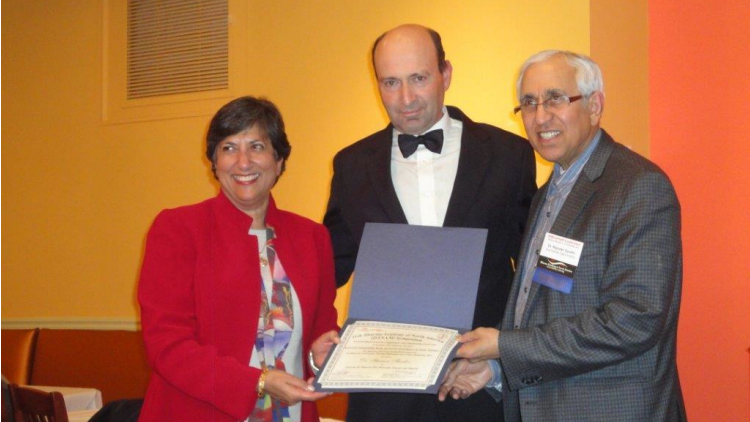
“Exploring the Bhagavad gita: Philosophy, Structure and Meaning,” a book by ISKCON Academy of Arts and Sciences member Dr. Ithamar Theodor, has received its second prestigious award.
Dr. Theodor is also a Department of Asian Studies lecturer at the University of Haifa in Israel, and an Adjunct Assistant Professor at the Chinese University of Hong Kong.
His book offers a new translation and in-depth academic commentary on the Bhagavad-gita. But Theodor’s unique contribution is his articulation of the Gita’s structure, thus highlighting the ancient wisdom text’s relevance in contemporary philosophy.
Upon its release by leading academic publisher Ashgate in 2011, Exploring the Bhagavad-gita was named a Choice Outstanding Academic Title.
This year, it received the DANAM-TakshaShila Book Award for Excellence in Indic Studies.

The DANAM Book Award for Excellence in Indic Studies
Takshashila University, located in Hampton, Virginia has a School of Philosophy and Religious Studies that focuses on both Asian and Western traditions.
DANAM — the Dharma Academy of North America — is an academic organization that attempts to further rigorous academic study of the four Dharma traditions: Hinduism, Buddhism, Jainism, and Sikhism, while simultaneously promoting a favorable attitude towards them. The organization includes some ISKCON devotee members.
Dr. Ithamar Theodor was presented with DANAM’s book award for Exploring the Bhagavad-gita during the organization’s eleventh annual conference, held from November 22nd to 23rd at the Hilton Hotel in Baltimore, Maryland.
The conference itself included sessions on Gurus of the Jain Tradition; Buddhist Women Masters; Swami Vivekananda; and “Woman and Goddess in Hinduism.”
The final session was on Gaudiya Vaishnavism and was entitled “Modern Pioneers of the Globalization of Krishna Bhakti: Prominent Teachers of the Chaitanya School.” Convened by Graham Schweig of Christopher Newport University and presided over by Ravi Gupta of Utah State University, it covered a wealth of fascinating topics.

Exploring the Bhagavad-gita Cover
Scholars including Abhishek Ghosh from the University of Chicago, Ferdinando Sardella from the University of Uppsala, and Graham Schweig discussed Bhaktivinode Thakur’s legacy, the Globalization of Bhakti, and Tamal Krishna Goswami’s Study of Bhaktivedanta Swami Prabhupada, amongst many other topics.
The DANAM conference also included a presentation by Dr. Ithamar Theodor on “Howard Resnick Rationalizing the Theology of Bhaktivedanta Swami.”
On the evening of the final day of the conference, forty to fifty scholars attended a special award dinner at a local Baltimore Indian restaurant, at which Dr. Theodor was presented with the DANAM book award.
Professor Ramdas Lamb of Hawaii University introduced Theodor, saying his book Exploring the Bhagavad-gita was an important contribution to scholarship.
Dr. Theodor was then presented with the award certificate by DANAM chairman Rajinder Gandhi and his wife Jyoti.
In his acceptance speech, Theodor thanked DANAM for their important work, and said he was happy to be associated with them and to receive the award from them.
He also spoke about his work, saying: “You can see how Greek philosophy turned into a global philosophy — I think now is the time for the Gita, as the core or heart of Indian philosophy, to gradually take a more prominent position among world philosophies.”

Thedor thanks DANAM and discusses his work
With two awards and positive reviews, Theodor’s book continues to be well-received by the academic community.
In his review for the Journal of Hindu studies, American scholar Carl Olson wrote that at this point it was “difficult to imagine that someone could contribute anything new” to the discussion about the Gita, but that “Ithamar Theodor does accomplish the task… with his carefully designed book.”
“From Theodor’s viewpoint, the Bhagavad Gita is a coherent theological–philosophical
treatise that is firmly unified as a single text because of its conceptual structure,
its basic assumptions, and its prevailing ideas,” Olson said. He added that “Theodor gives his reader much to admire, think about, and appreciate.”
In the future, Dr. Theodor hopes that Exploring the Bhagavad-gita will be published as a softcover and will be used a textbook in classrooms.
“I think the Bhagavad-gita offers a very deep philosophy of life, something which combines the philosophy of action — how to act in the world, avoiding the lower gunas and the fruits of action — with a very strong notion of ethics and a deep sense of knowledge,” he says. “It has a very distinct way of seeing the world and the soul entrapped in the body. And then it has the idea of devotion, and especially devotion to Krishna, which is very inspiring, and very satisfying emotionally.”
All these things, Theodor feels, make the Bhagavad-gita a very unique philosophy indeed.
“I do try to live the Gita, and I think it’s a great treasure in my life,” he says.
Dr. Ithamar Theodor’s most recent book, Brahman and Dao: Comparative Studies of Indian and Chinese Philosophy and Religion, is co-edited with Chinese University of Hong Kong professor Zhihua Yao, and was just published last month by Lexington.
With chapters by a host of different scholars on parallels between the Upanishads and Daoism, between ethics and metaphysics in the Bhagavad-gita and in classical Chinese thought, between yoga and Daoyin, and between Chaitanya-charitamrita and the Zhuangzi, it promises to be another fascinating read.




